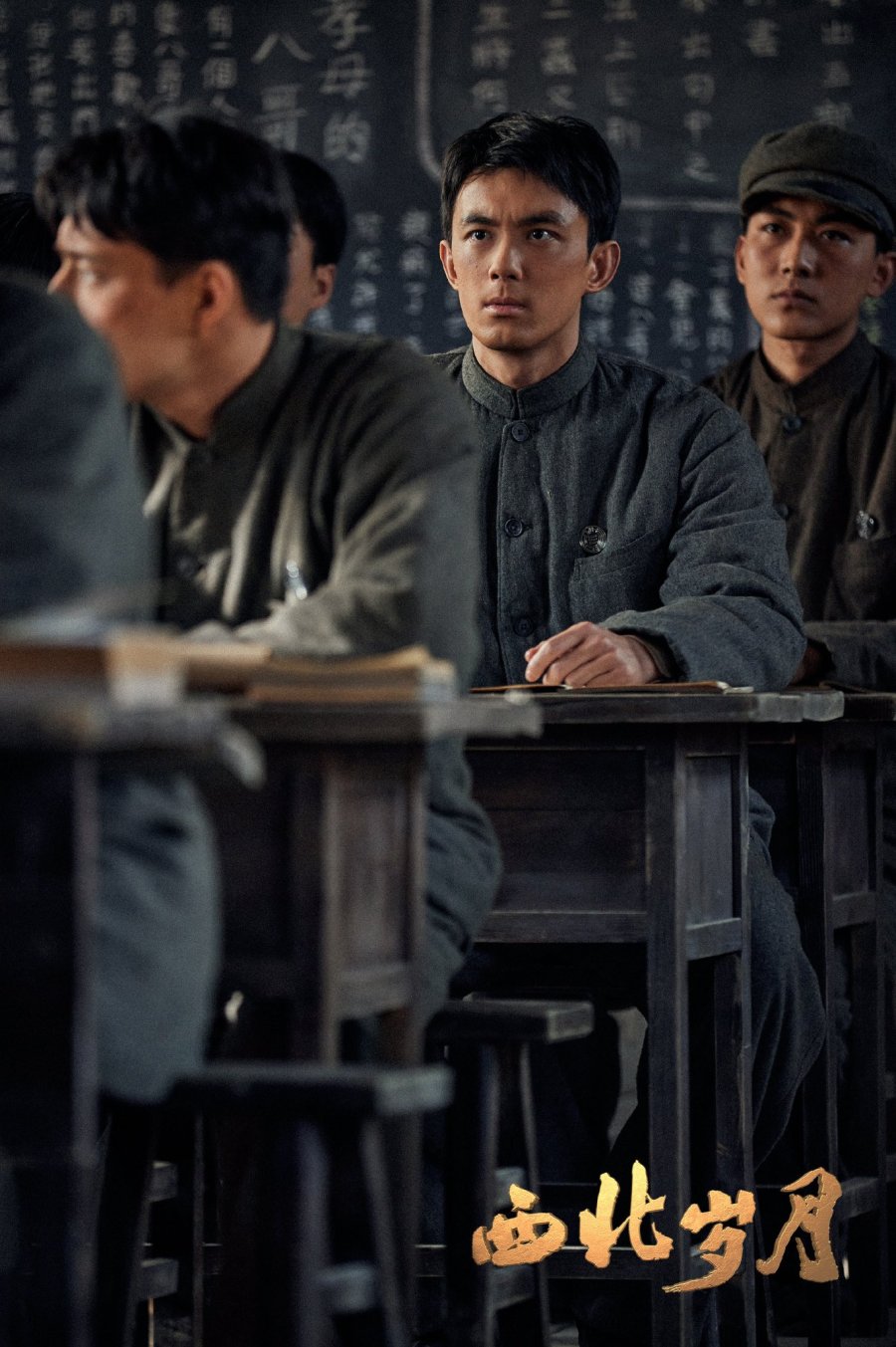Xi Zhongxun had an in-depth exchange with the 10th Panchen Lama, who hoped to realize his wish to return to Tibet. Xi Zhongxun promised to do his best to report the situation to the central government in a timely manner. In addition, Xi Zhongxun believed that it would be the best time for the 10th Panchen Lama to return to Tibet after Tibet was completely liberated, and suggested that the 10th Panchen Lama handle the relationship with the front Tibet well.
On the other hand, Xiong Yixin returned to Dahua Cotton Mill regardless of past grudges. Xi Zhongxun met with him in person and apologized to him for the previous things. Xi Zhongxun had long known about Xiong Yixin's past experience and knew his importance to Dahua Cotton Mill. He said that he could raise any requests or concerns he had when he came back this time openly.
Xiong Yixin felt that the factory had stopped production on many lines due to the loss of employees, and the losses were relatively large. Xi Zhongxun also took this into consideration and promised to provide Dahua Cotton Mill with an interest-free loan to cope with the difficulties caused by the shutdown during the past period of time. In addition, Xi Zhongxun also understood that the life of Dahua workers was difficult, so he coordinated with the state-owned flour mill to prepare a batch of flour below the market price for everyone to help everyone through the difficulties. He also decided to revoke the military control of Dahua Cotton Mill and let Xiong Yixin take full charge of Dahua's work.
Faced with Xi Zhongxun's sincerity, Xiong Yixin was very moved and stated that he would not leave again after returning this time, and he would publish a statement in the newspaper with the title "Trust the Government, Develop Production", hoping to call on everyone to eliminate concerns, resume production, and return to work.
When Xiong Yixin returned to Dahua Cotton Mill, the workers came to greet him one after another, and Xiong Yixin also asked Gu Lin to say a few words. Gu Lin was moved by everyone's tolerance and promised that he would sit on the side of the people in the future, so that Dahua Cotton Mill could restore its former prosperity, and they would benefit the society and the people together.
Soon, the 10th Panchen Lama met Mao Zedong in Beijing and presented him with a white Hada. Mao Zedong also hoped to promote the peaceful liberation of Tibet as soon as possible, saying that Tibet has always been an inseparable part of the motherland in history. In the past, the Qing government implemented a policy of restraint and pressure, but fortunately, it finally maintained national unity and was not occupied by imperialism. Therefore, after the founding of New China, they implemented ethnic regional autonomy. Mao Zedong believed that this system could lead the prosperity and development of the Tibetan region.
On the other hand, Xiang Qian, a thousand households of the Angla tribe, colluded with the remnants of Ma Bufang's bandits, openly attacked the People's Government of Guide County, and injured Jiang Fuyou, Wei Taiping and other public security soldiers of Guide County. At the same time, they also looted merchants and travelers, claiming to be the commander of the second army of the Anti-Communist National Salvation Army. Zhang Zhongliang immediately reported the situation to Xi Zhongxun, and the Qinghai Provincial Party Committee suggested that they should be cleared up quickly to prevent future troubles.
However, in the process of dealing with the rebellion of Xiang Qian, a thousand households in Angla, Qinghai, Xi Zhongxun always insisted on putting the overall situation first and political struggle first, because it was not a matter of eliminating Xiang Qian. The main reason was that Xiang Qian's family background had a far-reaching influence, and the relationship with the leaders in the surrounding areas was even more intricate. If he insisted on attacking Xiang Qian, it would inevitably make the surrounding leaders panic, and they could only use the method of persuading him to surrender unless it was absolutely necessary.
Xi Zhongxun suggested that Zhang Zhongliang and others could contact Xirao Gyatso, the vice chairman of the Qinghai Provincial Government. This person is the master of faith in the hearts of the Tibetans, and such a person can be invited to do Xiang Qian's work. The next day, Chengle Living Buddha went to see Xiang Qian in person and persuaded him to negotiate with the leaders of the Qinghai government, but Xiang Qian made up his mind.
Xi Zhongxun and the Northwest Bureau took charge of the preparations for the 10th Panchen Lama to enter Tibet, and begged the 10th Panchen Lama to help write a letter to Xiang Qian so that the other party would give up resistance. The 10th Panchen Lama agreed to give it a try, and also suggested that the Northwest Bureau should invite Master Xirao Gyatso and Gongtang Cang Living Buddha to come forward to do this person's work. Afterwards, Xirao Jiacuo took Zhaxi Wangxu, Ma Liang and others to stand outside the Qianhu Mansion. Xiang Qian still refused to see them after knowing this, and he did not take the Communist Party seriously at all. He was stubborn and unyielding.
Regarding the Northwest Bureau's cancellation of the military control of Dahua Cotton Mill, Gu Lin said that he would fully obey the organization's arrangements, and the factory also donated money and materials to support the War to Resist U.S. Aggression and Aid Korea. Although Gu Lin did so many wrong things, Xi Zhongxun was willing to give him another chance, pointing out that his problem was that he was seriously out of touch with reality and that he must not make "left" mistakes again in the future.
Zhandong Ji Jinmei and others began to enter Tibet, and tactfully asked Xi Zhongxun to bring a car to Tibet. In order to overcome the difficulty of transporting cars, Xi Zhongxun tried every possible way to arrange for Fan Ming to give his car to the Tenth Panchen Lama, which made Fan Ming miserable.

